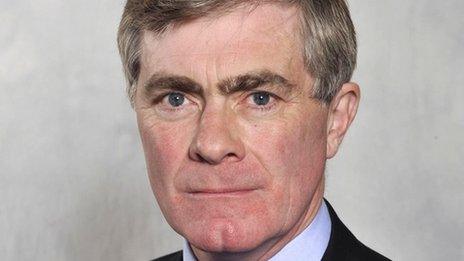Q&A: Political lobbying and rules for MPs and peers
- Published
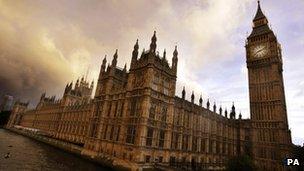
Prime Minister David Cameron previously warned that lobbying would be the "next big scandal"
What constitutes lobbying in Parliament and what are the rules governing it?
Why is lobbying in the news?
Three peers and an MP have been accused of being prepared to break the rules on lobbying in Parliament.
What are the allegations?
MP Patrick Mercer resigned the Conservative whip after claims by BBC's Panorama that he broke Parliament's lobbying rules by accepting £4,000 to lobby for business interests in Fiji.
Mr Mercer, who was approached by a fake company set up by the programme, denies wrongdoing, saying he took the money for consultancy work outside Parliament and has referred himself to the Parliamentary standards commissioner.
Separately, two Labour peers have been suspended and one Ulster Unionist member of the House of Lords has resigned the whip after allegedly agreeing to do parliamentary work for payment in contravention of the rules. Lord Cunningham, Lord Mackenzie of Framwellgate and Lord Laird all deny any wrongdoing.
What is lobbying and why do people do it?
Lobbying in order to influence political decisions is widely regarded as a legitimate part of the democratic process. Lobbyists are firms or individuals that are paid to influence such decisions.
They are often former politicians or ex-civil servants who have developed personal contacts with those in power.
Alternatively, individuals. firms, charities and other groups can lobby on their own, without paying professional lobbyists.
So, what's the problem?
There has long been concern that, if unregulated, lobbyists will begin to wield an unhealthy level of influence over political decision-making. This, it is argued, could mean the corruption of peers and MPs and undermine democracy.
Before the 2010 election, future Prime Minister David Cameron said lobbying was "the next big scandal waiting to happen".
What has the government done?
The coalition agreement, which set out the government's programme in 2010, said: "We will regulate lobbying through introducing a statutory register of lobbyists and ensuring greater transparency."
However, the policy has not yet made it into the government's legislative programme. There was no mention of it in the last Queen's Speech, but ministers say they are consulting on plans.
Cabinet Minister Francis Maude has hinted that a new law could be introduced within the next year.
What are current the rules on lobbying?
All MPs, including ministers, are subject to a code of conduct , externalwhen it comes to their outside interests and dealings.
They have to register their financial interests, including remunerated employment outside Parliament.
They are allowed to work as a consultant or be paid for advice.
However, they are forbidden from acting as a "paid advocate" - taking payment for speaking in the House; asking a parliamentary question, tabling a motion, introducing a bill or tabling or moving an amendment to a motion or bill or urging colleagues or ministers to do so.
So, what can and can't be done by MPs?
They can:
Be paid to act as a director, consultant, or adviser, or in any other capacity, whether or not such interests are related to membership of the Commons
Be sponsored by a trade union or any other organisation
Receive hospitality in the course of their parliamentary duties
They must:
Disclose their financial interests in a Register of Members' Financial Interests
Draw attention to any relevant interest when speaking in the Commons or corresponding with ministers, departments or executive agencies
Live up to the general principles of public life outlined in the code
Take decisions based on the public interest, not for their own financial benefit or for that of their family or friends
Not place themselves under any financial obligation to outside individuals or organisations
Make appointments or award contracts on merit not on any other basis
Be accountable for their decisions to the public and submit themselves to whatever scrutiny is appropriate
Be as open as possible about all decisions and actions they take
Declare any private interests relating to their public duties and to take steps to resolve any conflicts arising in a way that protects the public interest.
Not act as a paid advocate in any parliamentary proceedings. They should not take payment to speak in Parliament, to vote a certain way, to introduce legislation, to amend legislation or to urge others to do so
Not lobby for "reward or consideration" on behalf of any organisation with which they have a declared financial interest.
Be open with other MPs and officials about their dealings with any organisation with which they have a financial relationship, including activities which may not be a matter of public record such as informal meetings and functions
Not use information which they receive in confidence in the course of their parliamentary duties for financial gain
In addition, ministers must comply with guidelines when they leave office:
For two years after leaving office, they must get the approval of the Advisory Committee on Business Appointments for any appointment or employment they wish to take up.
They are expected to accept the committee's advice.
Former Cabinet ministers must normally wait three months after leaving office before they can accept any kind of paid employment.
Former ministers should not lobby existing ministers on behalf of any organisation for which they are employed for two years after leaving office.
What about peers?
The House of Lords Code of Conduct, external, which says peers must show "selflessness", "openness" and "accountability", states they have to:
Register all "relevant" interests, so they can "make clear what are the interests that might reasonably be thought to influence their parliamentary actions"
Declare when speaking in the House, or communicating with ministers or public servants, any interest which is a relevant interest in the context of the debate or the matter under discussion
"Never" accept or agree to accept money as an incentive or reward for exercising parliamentary influence
Not act as a paid advocate in proceedings to "confer exclusive benefit on an outside body or person from which he or she receives payment or reward"
It also advises that peers "should be especially cautious in deciding whether to speak or vote in relation to interests that are direct, pecuniary and shared by few others".
Peers, unlike MPs, are paid expenses rather than a salary, and are allowed to give general advice and act as consultants if this does not influence their behaviour.
Who enforces the rules?
It is the job of the Parliamentary Commissioner for Standards to look into complaints against MPs. The commissioner reports to the Committee on Standards, which then decides on a course of action to take against an MP, including recommending suspension from the Commons, if this is necessary.
MPs vote on whether to implement the recommendations.
For peers, the House of Lords Commissioner for Standards looks at allegations. The report goes to the Sub-Committee on Lords' Conduct, which reviews the findings and can recommend a punishment to the Committee for Privileges and Conduct. Peers have a right of appeal against this.
The final decision on punishment is made by the House of Lords as a whole.
- Published31 May 2013
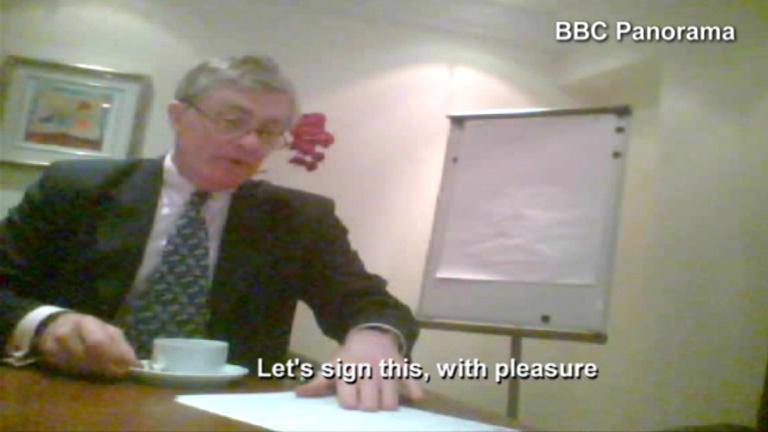
- Published31 May 2013

- Published31 May 2013

- Published22 May 2013
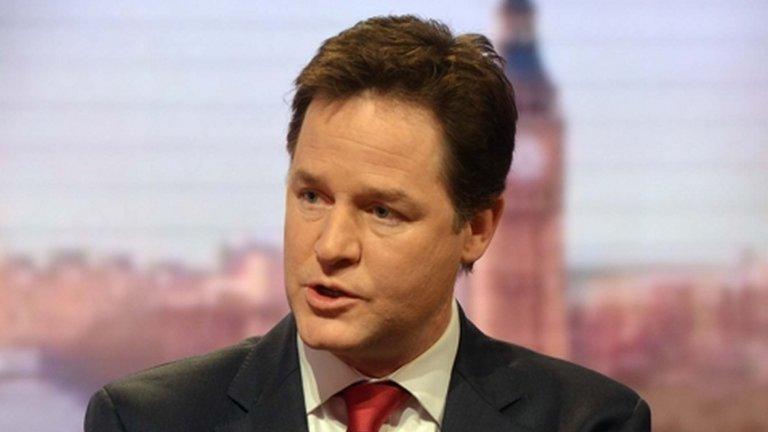
- Published17 October 2011
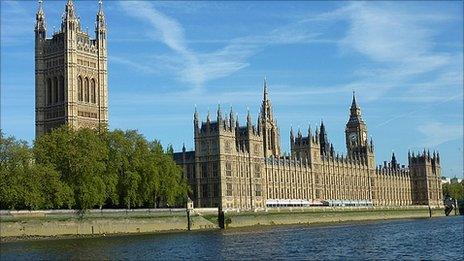
- Published14 November 2011
